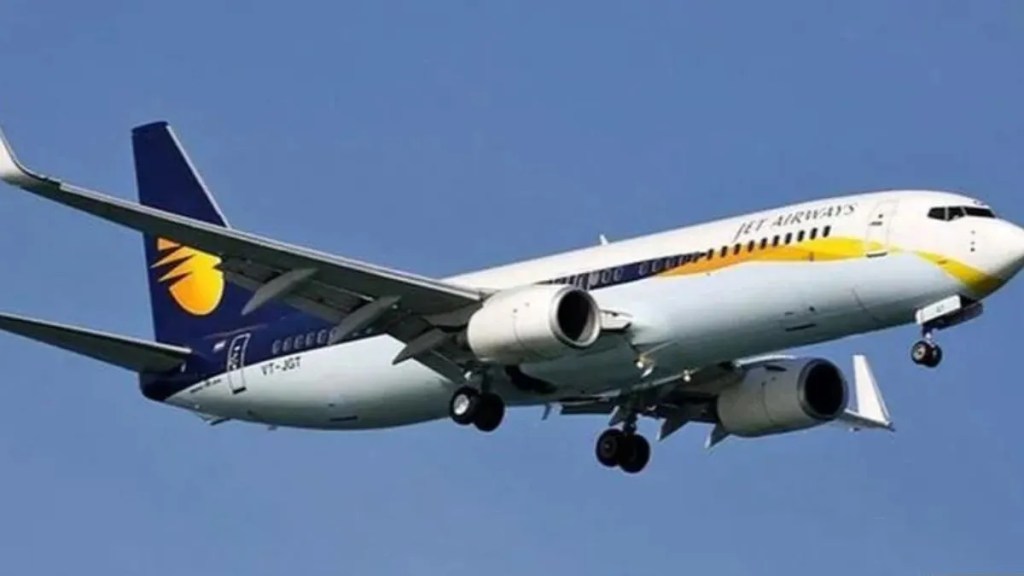At least three properties in Dubai in addition to bank guarantees valued together totaling over Rs 450 crore were the securities offered by the Jalan Kalrock Consortium (JKC) to the lenders of the erstwhile Jet Airways, as per the NCLT-approved resolution plan. A property in Mumbai’s upscale Bandra Kurla Complex (BKC) which is owned by erstwhile Jet Airways but now under the control of the lenders was kept outside of the resolution plan and could not be offered as a security.
These were against committed payments in tranches by JKC starting with Rs 185 crore followed by the second tranche of Rs 195 crore. The commercial properties in Dubai which are located in Jebel Ali Industrial First and Al Quoz are each valued at over Rs 100 crore.
These carried a release date in the fifth year from the start of operations of Jet 2.0 or complete payment. The property at BKC is valued at Rs 246 crore while a third property in Dubai valued over Rs 50 crore was also offered as mortgage.
Also Read: ‘Jet 2.0 won’t view customers as cash machines’
The business plan submitted by JKC to the lenders included revenue generation totalling $3.4 billion by the fifth year of operation from passenger and cargo verticals and other revenue streams, documents submitted to the lenders show.
Jet 2.0 had committed to start operations with a fleet of six narrow body Boeing B737 aircraft and eventually ramping it up to 111 aircraft in the fifth year. By 2027 the airline’s fleet was slated to have 86 narrow body planes and 25 wide body planes. The first of the wide bodies were to be inducted in the second year of operations.
However, the business plan also highlighted primary risks such as availability of leased planes at lower rates and the Indian government providing adequate slots and parking bays to JKC.
Also Read: Jet Airways union press for liquidation amid claims of contravening of resolution plan
On Wednesday, senior counsel Krishnendu Datta appearing for JKC argued that the lenders were dissatisfied and wished to change the contours of the resolution plan thereby contradicting Section 31 of Insolvency and Bankruptcy Code 2016 which deals in approval of resolution plan.
“The lenders suddenly find themselves unsatisfied after eight months after the effective date. They now want additional funds. This is totally unacceptable and contrary to the resolution plan. They are themselves aware that they want us to sign undertaking modifies the resolution plan,” Datta said.
JKC filed a rejoinder to the arguments from the lenders that took place for the previous two consecutive days. State Bank of India is leading the consortium of lenders. The senior counsel appearing for the lenders had argued about the reluctance of JKC to sign an undertaking which in-effect supersedes the approved resolution plan.
Once a resolution plan is approved by the adjudicating authority it cannot be changed, as per rules. The signing of an undertaking by JKC will mean tantamount to a breach of the agreed resolution plan.
The undertaking mentions that JKC shall procure the slot allotment approvals for all airport slots as set out in the resolution plan. The NCLT bench had concurred that restoration of the historical slots was not possible since those slots are no longer available.
“Can they then seek such an undertaking from me? The moment I agree to such an undertaking then I would be in breach of the plan. The conduct of the lender leaves much to be desired,” Datta added.
The lenders had argued that the start of international operations from the beginning was one of the commitments made by the JKC. But as per Indian laws, an airline has to deploy 20 aircraft or 20% of total capacity in the domestic market to be cleared for flying outside of the country. The lenders want JKC to get international traffic rights clearance even before it starts flight operations.
JKC however highlighted a letter it received from the Ministry of Civil Aviation in May 2022 which states, “The application of Jet Airways, if it has a valid Air Operator Certificate and fulfils the criteria, will be examined for international scheduled operations at an appropriate time.”

